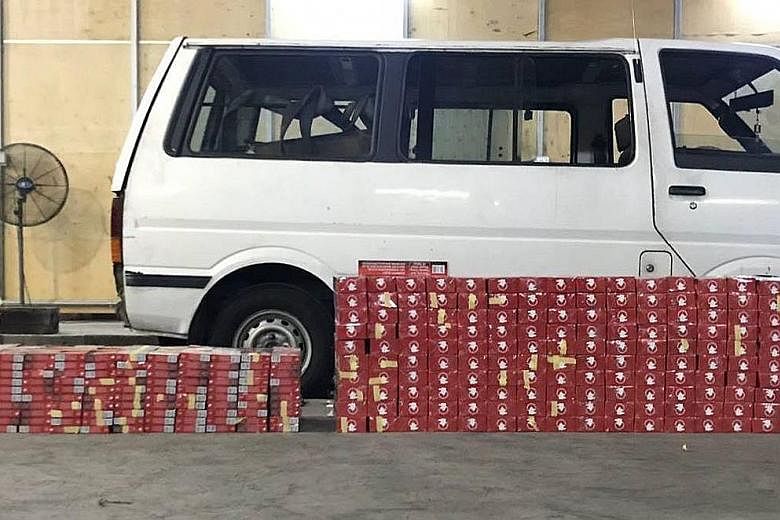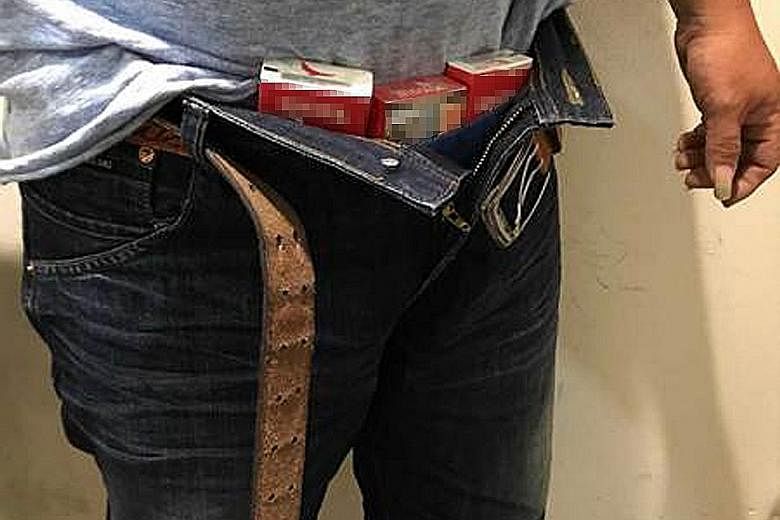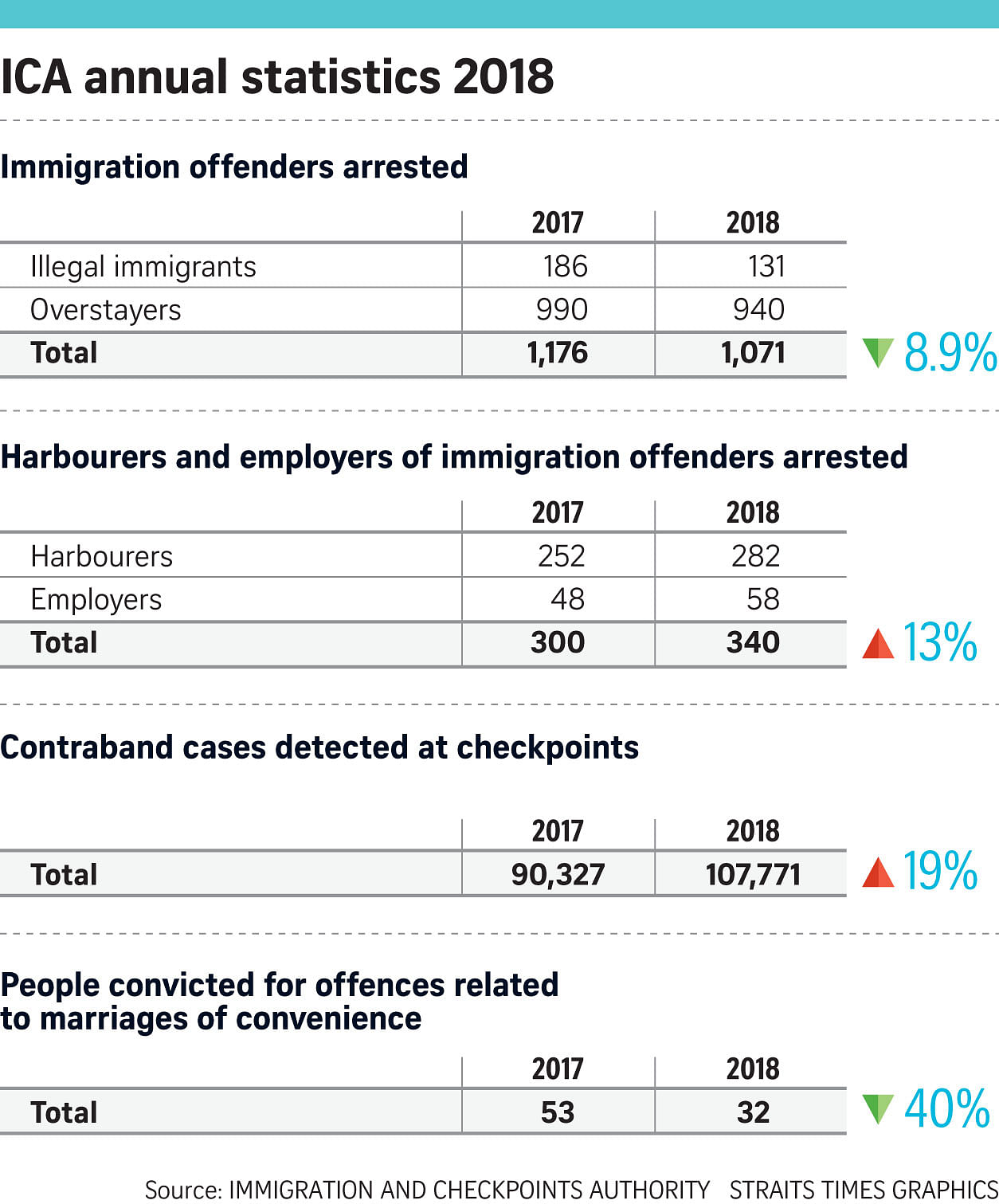There were 107,771 contraband cases detected at Singapore's checkpoints last year, a 19 per cent climb from 90,327 the year before.
It averages out to about 300 cases a day last year.
This is the highest annual figure recorded, the Immigration and Checkpoints Authority (ICA) said yesterday in its annual report.
The agency said this was mainly due to a rise in contraband cases detected at the land checkpoints.
ICA Commissioner Marvin Sim said the agency cleared more than 212 million travellers, and 10 million consignments, containers and parcels last year.
"Even with stringent checks and high penalties, attempts to smuggle contraband items into Singapore have persisted," he said.
He stressed that ICA officers cannot let up on security checks, "even when the checkpoints are congested".
According to the report, lorries and heavy commercial vehicles continued to be one of the most common modes of transport for contraband items, a trend which ICA found to be of concern.
This is due to the sheer size of such vehicles; this allows large quantities of contraband items, or security-sensitive materials such as toxic industrial chemicals and explosives, to be concealed within the consignments or in secret compartments, said the ICA.
To address some of these challenges, ICA introduced radiographic scanners to scan cargo vehicles, and implemented bus scanners at Tuas Checkpoint last year.
The agency also revealed yesterday that there was a 13 per cent increase in the number of harbourers and employers of immigration offenders caught, from 300 in 2017 to 340 last year.
The majority of harbourers and employers were Singaporeans or permanent residents above 50 years old who failed to properly check foreigners' immigration statuses so they could earn money from rental fees.
To tackle this issue, ICA engages community partners such as home owners and estate agents, spreads anti-harbouring messages through outreach events, and distributes the ICA Homeowner's Guide in community clubs and Housing Board branch offices.
Meanwhile, the number of immigration offenders arrested fell 8.9 per cent to 1,071 last year, with a drop in both the number of illegal immigrants and overstayers arrested.
ICA conducted an average of more than 100 enforcement raids monthly.
Most of the immigration offenders were in maintenance and construction work.
ICA explained that immigration offenders are a security risk as they "may resort to crimes to sustain their livelihood", and denying them shelter and jobs would deter them from coming to Singapore.
Last year saw 32 people convicted of offences related to marriages of convenience, a decrease of about 40 per cent from the previous year.
Mr Sim said: "As the global security threat remains high, ICA must spare no effort to secure our borders, even as we facilitate the entry and exit of increasing volumes of travellers and cargo."




